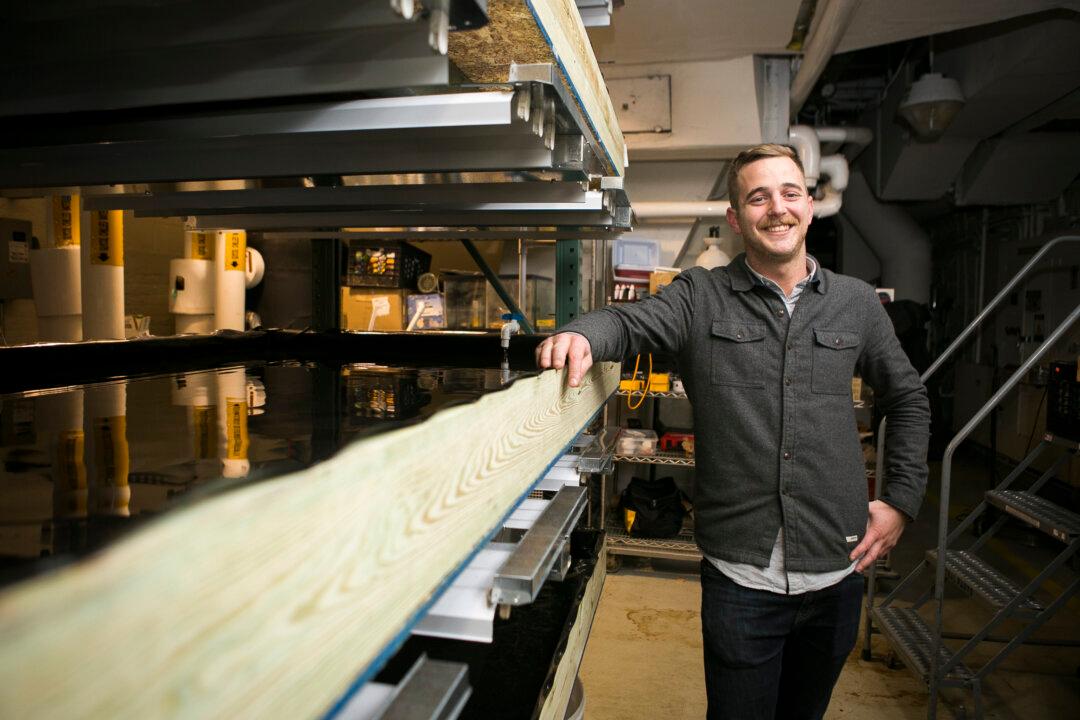NEW YORK—In the dusky penthouse of the old Pfizer building in Bedford-Stuyvesant, Brooklyn, four urban aquaponic practitioners meet after sunset. They check the nitrate level, the ammonia level, and then the grow beds, the fish tanks, and the bacteria, to make sure that the delicate balance of their rare farm has not been thrown out of kilter while they were away working at their day jobs.
Miles Crettien, Jacob Hill, Peter Spartos, and Ryan Morningstar are co-founders of VertiCulture Farms, a startup that is operating an aquaponic research and development farm. It has plans to become the first commercial-scale aquaponics farm in New York City.
With backgrounds in agriculture, ecological design, fish, plant biology, and business, the quartet is working on a large aquaponic farm that will soon allow New Yorkers to not only buy Brooklyn-grown fish and vegetables, but also provide the technology and education for people to grow their own fish and veggies from their apartments should they choose.
The success of such a farm could propel an important shift in New York City: Imagine if a city of more than 8 million could mass produce its own food.
It would greatly reduce fossil fuels from food transportation to say the least, and increase food freshness.
“I’m really excited about this project,” said Jennifer Berg, director of New York University’s graduate food studies program who has been following the startup’s progress. “It seems it’s going to be done right, and it can serve as a model for other cities.”
Aquaponics—the antithesis of large-scale industrial farming—is an innovative farming system where the waste stream of fish is used as a source of nutrients to grow vegetables in water.





